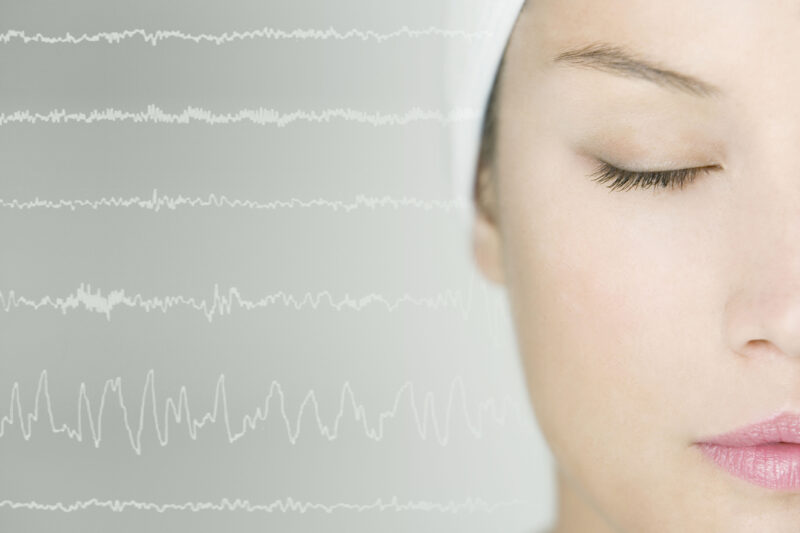With the rapid nature of modern living, most people don’t get as much rest as they should. There are many facets of everyday life that limit the quality of sleep for many people, but this shouldn’t be overlooked in regard to your health.
Not only is sleep essential for normal bodily functions, but it’s crucial for the brain’s healthy function. Your quality of sleep, its cycles, and brain functionality are correlated in more ways than one.
Keep reading through this informative article to learn about one of the most vital brain basics; sleep, the different stages, and why it’s so important for your body and mind.
The Relationship Between Sleep and the Brain
Sleep is a vital process for the brain and body and still includes active processes even though you remain unconscious for the time being. In total, there are four different stages of sleep, but the stage that gets most of the attention is REM sleep.
The stages of sleep are characterized by wave patterns in the brain, in addition to variations in body temperature, heart rate, and breathing. Below, you can review a handful of common benefits related to a good night’s rest.
- Feeling rested and energized
- Memory consolidation
- Rest for the vascular system and heart
- The release of growth hormones
Aside from this variety of benefits for the body, sleep works in conjunction with the brain in several unique ways. This is especially apparent in regulating sleep cycles, as they require the help of neurotransmitters from the brain.
Processes of the Brain During Sleep
Specific neurotransmitters such as norepinephrine and serotonin are produced by neurons in the brainstem. These help to keep the brain active. In the same vein, neurons located at the brain’s base are responsible for initiating sleep.
Neurons can accomplish this by inhibiting the signals that are focused on wakefulness.
It’s this back and forth between different neurotransmitters that help to regulate periods of sleep and wakefulness. Researchers are confident that numerous factors play a part in how an individual’s sleep-wake cycle works.
Some of these factors include:
- Environment
- Genetics
- Lifestyle choices
Sleep disorders also have a direct correlation to certain brain functionalities. For example, insomnia and sleep apnea have caused researchers to explore the collaboration between the brain and sleep cycles.
Aside from sleep disorders, a lack of sleep can be a determining factor in the occurrence of mental health and metabolic disorders, in addition to cardiovascular diseases. You can find many cooperative functions between rest and the brain by understanding the different stages of sleep.
What are the Different Sleep Stages?
The stages of sleep are divided between REM and Non-REM sleep. In regard to Non-REM sleep, this includes stages one, two, and three, with the third stage being known for deep sleep. You can find a brief look at what’s included with different sleep stages in the bullet list down below.
- Stage 1: This is when muscle activity and eye movement begin to slow down
- Stage 2: Focuses on relaxation and muscle tone but can include rapid bursts of brain waves called sleep spindles
- Stage 3: Known for slow delta waves in the brain, there is no eye movement in stage 3, and it comes with minimal muscle activity
Important factors associated with Non-REM sleep include building muscle and bone, strengthening the immune system, and tissue repair. Outside of these sleep stages, the human body enters REM sleep roughly 90 minutes after falling asleep.
This particular sleep stage is responsible for the vivid dreams humans have. Throughout the process of REM sleep, the brain sees an increase in activity and reaches levels similar to wakefulness.
At the same time, primary muscles will become paralyzed temporarily. An interesting fact, the beginning stage of REM sleep is quite short, but other REM stages become longer as the night progresses.
Unfortunately, although REM sleep is quite important, the occurrence of this stage decreases as you age. This is why many older individuals have trouble getting deep sleep, which can lead to many health concerns.
To get the best sleep, it’s a good idea to be educated about side effects related to a lack of sleep and what you can do to make improvements in the quality of your sleep.
Avoiding the Risks of a Lack of Sleep
A general lack of sleep is also considered to be sleep deprivation. In short bursts, this doesn’t pose much of a risk to the brain and body. However, for extended amounts of time, sleep deprivation can slowly damage the body in many different ways.
There’s an increased risk of the following health conditions regarding sleep deprivation:
- Stroke
- Type 2 diabetes
- High blood pressure
- Kidney disease
- Depression
- Anxiety
- Irritability
These complications can be avoided by getting a good night’s rest, and there are multiple methods you can put to use to prepare your body and mind for sleep. Research shows there are numerous choices you can make to improve your sleep and maintain the health of your brain and bodily functions.
Some techniques you can utilize to improve your sleep include:
- Exercising regularly
- Get your rest and wake up with a consistent schedule
- Sleep in cool temperatures
- Relax at least one hour before bed
- Avoid caffeine and nicotine
- Minimize distractions an hour or two before you plan to sleep
With more research, you’ll realize you can benefit your sleep schedule in a variety of ways successfully. It should be understood that not every one of these methods works for everyone, and finding what works for your body may require some trial and error.
Final Notes
Improving your quality of sleep is a long-term journey. Aside from feeling rested, the health of your brain and body should be a motivator to create a consistent sleep schedule.
This isn’t always easy for everyone, but it’s crucial for the vitality of your body as you age.










